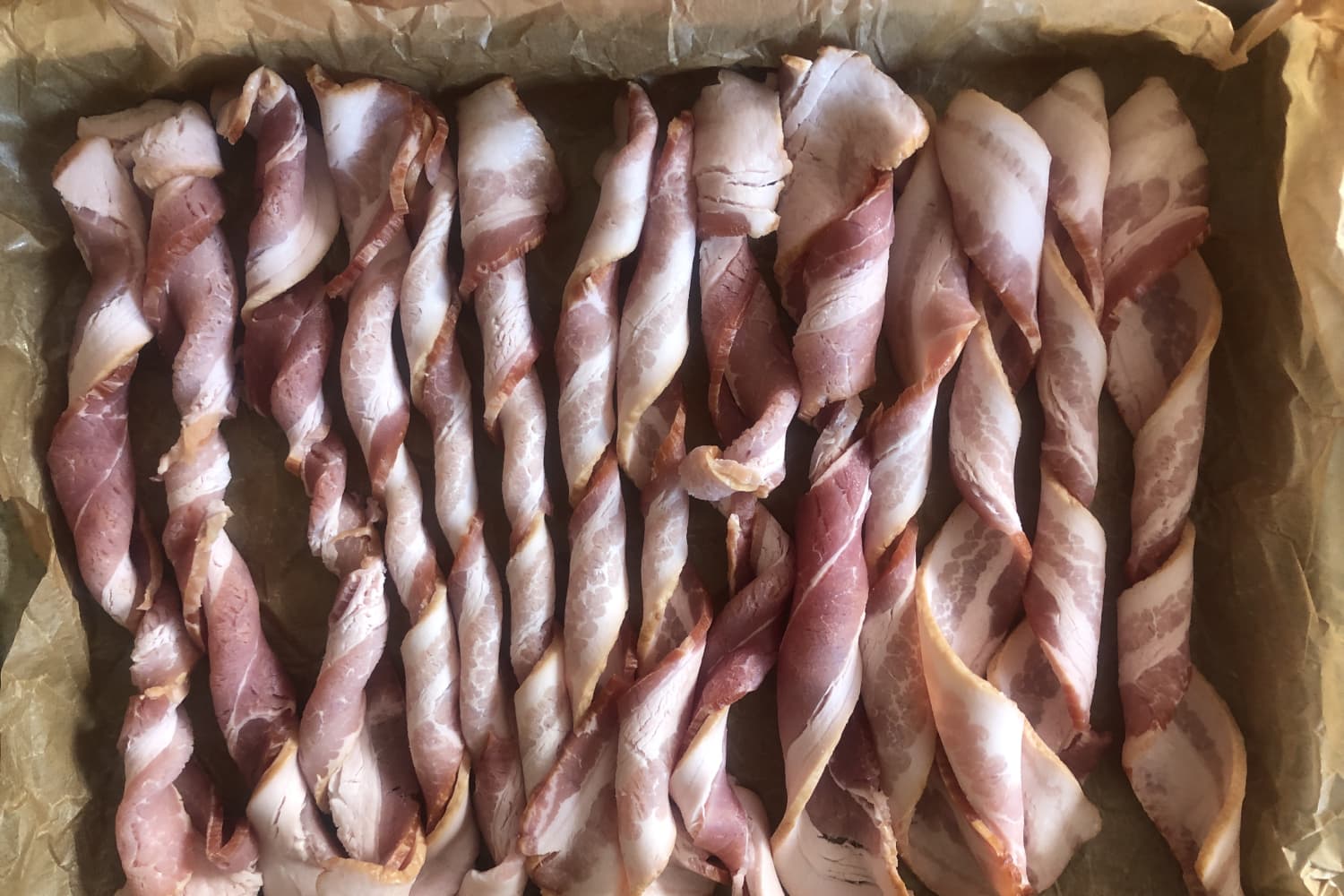Products You May Like

We independently select these products—if you buy from one of our links, we may earn a commission.
Patiently eyeing the last two pieces of bacon is practically a competitive sport in my household. That’s because there are four people in our home and until I found this bacon hack on Instagram, we had not managed to find an efficient, delicious way to cook more than six slices of bacon without either dirtying extra pans or having it take all morning. This twisted bacon hack cleared my skin, raised my grades, and made my crops flourish. Okay, maybe that’s exaggerating, but it made a special breakfast treat quicker and easier to cook and clean, and when you have young children, that’s feels like the same thing.
My Family Has a Bacon Problem (There’s Never Enough)
My family generally cooks bacon on the stove in our big cast iron skillet. It comfortably fits six pieces. If we add more, they stop laying flat, and the fat doesn’t all render properly. We used to try to do it in the oven, but ours takes forever to heat up, and even then it doesn’t read the temperature properly.
To help ameliorate the oven issue in general, we recently added a toaster oven to our appliance arsenal. Making bacon in the toaster oven is great, but the quarter sheet pans that fit into it, frustratingly, have the exact same six-slice capacity as the skillet. Once I tried to sneak two extra slices on, they all touched each other, and came out flabby. I gave up — we would just resign ourselves to a family stare-off over the last two slices of bacon forever.
Then this post came up on Instagram from Al Dente Diva (who got the idea from @lowcardstateofmind who got the idea from @house.of.keto). The video bragged that this trick would give your bacon the best possible texture, saying, “It’s like crispy and chewy in the middle.” But I saw something different: a way to cook way more bacon than we ever could before without losing the crispy result.
How to Make Twisted Bacon
This technique couldn’t be easier. You simply twist slices of bacon and lay them next to each other on a parchment paper-lined sheet tray. I was able to get 14 slices of bacon on my tray, and I twisted some tighter than others to play around with what worked best. All the videos I watched were vague on timing and temperature. I used my trusty toaster oven for this technique, and started at 350°F for 10 minutes, then turned it up to 400°F for 10 more, then to 450°F for a final 5. Next time I’ll do 425°F for 14 minutes with convection.
Here’s My Review of the Twisted Bacon Technique
The result — as the video promised — was basically the platonic ideal of bacon texture. And even better, 14 slices of it at once. I’m guessing something about the twisting allowed for air to flow through the bacon, so that even where it touched other pieces, it still crisped up. It also didn’t give you that dry, crumbly crispiness of overcooked bacon, because it sat nestled into the pan with all the rendered fat.
When I put the bacon on the plate, I realized another advantage of the method: I poured off the bacon grease into the jar, tossed out the parchment paper and the pan was nearly spotless already. As I finished pouring the milk in the kitchen for breakfast, I heard my daughters sneaking bacon slices from the plate and for once I didn’t have to make sure they didn’t eat it all before their parents got any. The bacon glut made everyone happy — particularly the slices that were rolled less tightly. I suspect the wide roll helped with that airflow that creates the good texture.
After breakfast, we all sat staring at the bacon plate for a new and different reason: for the first time since my kids discovered the magic of crispy morning meat, we had leftover bacon.
